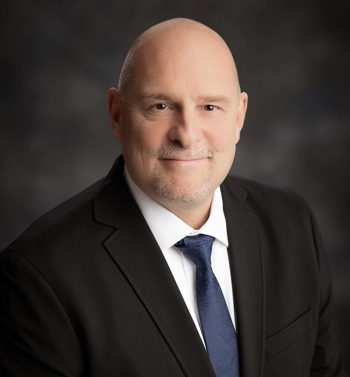Estate Planning FAQ
Answers From Kalamazoo Estate Lawyers Serving West Michigan
Throughout our years of practice, we have received many estate-related questions from our clients in Kalamazoo, Grand Rapids, Paw Paw and surrounding West Michigan communities. Below are answers to some of the most frequently asked questions, as well as other important estate planning information.
To learn more about our services, contact us at (888) 461-7744 today for a free initial consultation with our firm.
Is an irrevocable trust established with my assets free from the claims of my creditors?
It depends. Michigan law does not allow for the creation of a so-called asset protection trust, where one transfers his or her own assets into a trust established for his or her own benefit. However, if the grantor (creator) of a trust transfers his or her own assets into an irrevocable trust established for the benefit of someone else, like a spouse or children, then the assets may be maintained free from the claims of the grantor's creditors and the creditors of the trust beneficiaries.
Sometimes our clients establish so-called life insurance trusts, otherwise known as ILITS, which hold a life insurance policy (or policies) on the life of the grantor, and generally maintain these asset-protection benefits for the family, in addition to the benefits that life insurance proceeds are ordinarily received without tax to the recipient and the fact the cash value of the policy may in most instances grow tax-deferred.
My loved one died in an accident, and I am about to receive a court award. I am disabled and on Medicaid. What can be done to prevent my ineligibility from Medicaid after receipt of this award?
There are multiple planning techniques that might be employed in this situation, but if you are under 65 years of age, then you might find the best alternative being the creation of a "Medicaid payback" trust — i.e., one that pays for your supplemental or non-medical needs during your lifetime, and at your death first repays Medicaid before the balance of funds are distributed to your beneficiaries. This trust is sometimes called a "D4A" trust because of the provision in the federal law that allows creation of such a trust. This type of trust can be created without court order in some instances; however, lawyers often seek the cover of the court in creating and funding such an instrument.
I heard that my trustee could take more than his or her fair share — is that right, and if yes, should I appoint a bank or professional individual as trustee of my trust?
Our law firm is retained by a number of folks who are not positive that the trustee of a trust they are beneficiary of is properly completing his or her job requirements. Almost always, the trustee is a brother, sister, uncle or aunt, or other relative of the beneficiary. Michigan law, unfortunately, does not require an individual trustee to post a bond against trust assets, which would have the effect of ensuring those assets will be properly distributed according to the terms of the trust. In these instances our work becomes that of a private investigator — working to ensure the relative isn't taking more of the share of assets to which they are otherwise entitled.
In most cases, if the deceased had appointed a bank or professional individual as trustee, these issues would not exist and the additional expenses of the beneficiary would not have been incurred. Banks and professional individual trustees must also be watched, to ensure they properly perform their duties, but the issues of impropriety and improper management of funds are significantly decreased when they act as trustee.
I read that joint planning with real estate may be a way to avoid a "jump" in property taxes on my death. Is that true?
Maybe. A new Michigan Supreme Court case (Klooster v. City of Charlevoix) indicates that, in certain circumstances, a homeowner may deed his or her property in joint ownership with someone else (e.g., a child) and at that homeowner's death, the property would not be "uncapped" and re-assessed for real property tax purposes under the Michigan General Property Tax Act.
Although this advantage may be significant, it needs to be weighed against the usual detriments of joint planning including, but not limited to: (a) placing property at risk of someone else's creditors; (b) potential significant capital gains problems; and (c) potential disinheritance of greater descendants. I recommend seeking competent counsel to discuss the pros and cons for your specific circumstance.
I am going to receive an inheritance that I don't need, and would rather my kids receive the inheritance. What are my options?
The answer will depend on the governing instrument, which is presumably a will or trust. If the will or trust informs that if you were not alive, that instead your children would receive your entitlement, then you may be able to exercise what is called a "disclaimer" document. There are specific rules that govern proper exercise of these documents that are grounded in both federal (income tax) and state laws. That said, the essence of a "disclaimer" is a signed writing by which you would indicate you have no interest in the inheritance and don't want it.
The rules of proper disclaimers would then treat you as if you predeceased the grantor (creator) of the will or trust and thereby your share becomes your children's. This is a relatively complex area of law, so I would recommend seeking the advice of competent counsel to guide you through this process. Generally, your other alternative is one of receiving the inheritance and then gifting the interest to your kids. Depending on your potential Michigan estate tax situation, this may not be the best alternative for you.
Does the new federal estate tax law provide any planning opportunities?
The reunification of the estate and gift tax exemptions at $5 million (at least, and perhaps only, for the next two years) creates an enormous opportunity for persons with potentially taxable estates to make tax-free gifts of appreciating assets during one's lifetime. In addition, with the generation-skipping transfer tax exemption also being currently hoisted to $5 million, a significant opportunity exists to make lifetime transfers (in trust or otherwise) to grandchildren. At no other time in history has one been allowed to transfer this much wealth (up to $5 million if single; $10 million if married) without any gift tax or generation-skipping transfer tax cost. I highly recommend you contact your qualified advisor to assist you with further detail as it relates to your specific circumstance.
Please summarize the new estate tax law.
Under the recently enacted "Tax Relief, Unemployment Insurance Reauthorization, and Job Creation Act of 2010," the state tax has been revived. During 2011 and 2012, the top rate will be 35 percent. For 2011, the exemption amount will be $5 million per individual (indexed for inflation after 2011). Tax historians would note that except for the temporary repeal of the estate tax in 2010, the estate tax rate has not been less than 45 percent since 1931. For gifts made after December 31, 2010, the gift tax will be reunified with the estate tax. Under the new law, the estate and gift tax exemptions will be reunified starting in 2011, which means that the $5 million estate tax exemption will also be available for gifts. The law in effect prior to 2010 provided a $3.5 million lifetime exemption for estates, but only $1 million for gifts. The gift tax rate, starting in 2011, will be 35 percent. The law also intends to make it easier to transfer the $5 million exemption to a surviving spouse, whereby married couples can shield $10 million of their assets from taxes. This is the so-called portability provision of the new law. Unfortunately, the new law provides the same uncertainties as the old, in that on January 1, 2013, the estate tax exemption will be a mere $1 million and the top rate will again be 55 percent. Further, the "portability" provisions will be gone. We are again then sitting on a "sunset" provision that makes long-term planning very difficult indeed.
I need to choose someone to administer my revocable trust after I pass away. Should I pick a family member or a professional?
The answer is, "It depends." Trustees will typically find themselves managing considerable assets, making difficult decisions and communicating these decisions to others. For these reasons, your choice of trustee must have the ability to properly manage funds, communicate effectively and handle stress and adverse family dynamics and issues. Some clients choose a family member who is familiar with the family and assets involved. This selection, however, may not be a good choice as the trustee is likely to encounter unnecessary stress due to lack of experience administering trusts. This person will also face pressure from family members to perhaps not administer the trust in a proper way or to rush distributions that are not yet ready to be made.
Many times this results in not only a poorly and costly administered trust, but also irreparable family relationships. For other clients, choosing a professional trustee makes sense. This choice removes stress from family members, helps preserve family relationships and also ensures that a competent professional will handle the trust administration. Furthermore, because the professional trustee is a third party, this person is not likely to be susceptible to improper family demands. *This "answer" received contribution from attorney Benjamin J. Herbert of Willis Law, whose practice concentrates, in part, on estate and trust administration.*
My bank recently required a copy of my full trust document in order to name my trustees as beneficiary of my bank account; do I have to comply or can I merely provide the bank with a copy of a certificate of trust?
Michigan recently adopted portions of the Uniform Trust Code, and as part of this process created a statute that speaks to this issue. Specifically, MCL 700.7913(8) informs that if a third party makes a "demand for the trust instrument in addition to a certificate of trust...[then such third party] is liable for damages, costs, expenses and legal fees if the court determines that the [third party] was not acting pursuant to a legal requirement in demanding the trust instrument." If the bank can direct you or your counsel to its legal requirement for requiring the full trust document then you should comply. If it cannot so direct you, provide the bank with a copy of the certificate of trust Michigan and ask counsel to assist you with informing the bank on the application of this statute.
My dad, who died after my mom, recently passed away a resident of Kalamazoo County. Legally, what do I need to do?
This answer is part two to this question and addresses tax matters pertaining to the question. The first installment briefly discussed the probate process and trust administration. As it relates to taxes, the answer also depends on whether your dad planned for death via a will or trust, or not at all. If via a will or not at all, then a probate estate will be commenced. For tax purposes, an estate will have a tax filing requirement in every year that its income exceeds $600. An estate may have a 12/31 year-end or its year-end may run from your father's date of death. A decision between these two tax years will need to be made in order to determine when the tax return, Form 1041, is due. If your dad planned via a trust and there is no probate estate, then the trust will have a tax filing requirement in every year that its income exceeds $600 or it has any taxable income. A trust must generally have a 12/31 year-end which means the return, also a Form 1041, will be due on April 15 of each year. Please also be aware that a final 1040, a personal income tax return, will need to be filed for the last year of your dad's life. This is of course due on April 15. I highly recommend you seek competent counsel and a qualified certified public accountant to further assist you with this matter.
What is the best way to hold rental real property as part of my estate plan?
The best way to hold rental real property as part of a proper estate plan is through a limited liability company. A limited liability company ("LLC") shields against both "inside" and "outside" creditors. Inside creditors are those that arise in the operations of the company, e.g., a slip-and-fall on the premises. Michigan premises liability law informs that the property owner is sued in such an instance. If the owner is an individual, then all assets (not otherwise exempt) of that individual are at risk from such a lawsuit. If the owner of the premises is instead an LLC, then in most instances only the assets of the LLC are at risk. Outside creditors arise in activity separate and apart from an LLC; e.g., a significant car accident for which an individual is at fault and insurance is not adequate to cover a creditor's claim. In such an instance, the judgment creditor cannot lien and foreclose against a membership interest in an LLC, whereas if the property is owned in an individual's name, the opposite is true; the creditor can lien and foreclose on the property. For persons with a revocable trust, LLC interests should either be owned by the trust or assigned to transfer on death to the trust.
My disabled brother, who receives Medicaid benefits, is about to receive an inheritance. Is there a type of trust that could be established and funded with these inheritance assets, but that would not disrupt my brother's Medicaid eligibility?
Yes. If your brother is under the age of 65, this goal could be accomplished by use of a first-party special needs trust. Another option, which has no age limit, is what is known as a "pooled account trust." This type of trust is created and managed by a nonprofit association which "pools" the assets of multiple Medicaid recipients. A pooled account trust is designed to protect eligibility for Medicaid, SSI and other means tested programs. Such a trust also has the benefit of relieving family members of the burden of administering trust assets (e.g., handling tax issues) as the nonprofit association will take on this responsibility. Because of the nature of the pooled account trust, the expenses to set up and maintain the trust can be minimal. In the event the assets placed in the pooled account trust are not used entirely for your disabled brother, the assets usually are retained by the trust. *This "answer" received contribution from attorney Benjamin J. Herbert of Willis Law, whose practice concentrates, in part, on Medicaid planning and elder law.*
My disabled brother, who receives Medicaid benefits, is about to receive an inheritance. Is there a type of trust that could be established and funded with these inheritance assets, but that would not disrupt my brother's Medicaid eligibility?
Yes. The law allows for your brother's inheritance to be placed into what is sometimes called a "first-party special needs trust" and such a trust, if properly drafted, would not disrupt your brother's Medicaid eligibility. This is only true, however, if your brother is under age 65. Such a trust can be established by your brother's parent, grandparent or guardian or by a court. Oftentimes seeking a court's approval on the creation of such a trust is wise. The trust could appoint any of your brother's loved ones (over the age of 18) as trustee, and can be administered during your brother's lifetime to provide for his "special needs" while maintaining his eligibility for Medicaid. This type of trust is also sometimes called a "Medicaid payback" trust, because at your brother's passing the trust must require that funds be used to repay the Medicaid program for benefits it provided during your brother's lifetime. Any remaining funds could be paid, by way of example, to his family. Another option also exists, regardless of your brother's age, by way of placing these inheritance assets into what is called a "pooled account trust."
If I create a trust and deed my home to that trust, have I hurt myself for Medicaid eligibility purposes?
Yes. Under current Medicaid rules, a home owned in a trust is a "countable" asset, whereas a home owned outside of a trust is exempt (with a cap of $500,000 in equity). A critical aspect in creating a trust is making certain that it is properly "funded." This means that assets are correctly titled so that they are "owned" by your trust, and may be distributed according to the terms of your trust upon your passing. When an individual creates a trust, ordinarily a new deed is drafted which transfers ownership of that individual's home to his or her trust. This action, as outlined above, is extremely detrimental for Medicaid purposes. The problem is solved by creating a "ladybird" deed to the trust, instead of an outright disposition. These deeds — purportedly named in honor of the estate plan set into effect for former First Lady Ladybird Johnson by her husband, President Lyndon Johnson — reserve for the grantor both a "life estate" and an absolute power to sell, rent, lease, mortgage or otherwise convey the home. At the grantor's death, the home transfers to trust, avoiding probate. During lifetime, the home retains its position as an exempt asset for Medicaid purposes, and thus the ladybird deed truly becomes a tremendous vehicle for folks who are interested in Medicaid eligibility during lifetime in addition to probate avoidance.
If I am on Medicaid, will the government claim my assets after I am gone through the "estate recovery" program?
Yes, so long as Michigan's estate recovery program is then up and running, you received benefits from our Medicaid program, and you left assets in a probate estate that are not exempt. On October 1, 2007, Michigan adopted an "estate recovery" law. Before passing the bill, Michigan was the only state in the country that did not have such a law. The law does provide opportunities to avoid its sometime otherwise harsh impact. First and foremost, it applies only to probate assets. If you die leaving no assets subject to a probate estate, there will be no recovery. Typically, the best way of avoiding probate is through the establishment and proper funding of a revocable living trust during your lifetime. Next, certain "income producing" assets are exempt. Finally, a home may be exempt if occupied by your spouse or child who is blind, disabled or under age 21. Certain other homestead exemptions apply. It is highly recommended that you seek the advice of a competent attorney if you have further questions pertaining to Michigan's estate recovery program.
My spouse is about to enter a nursing home; should we sell our home to pay for nursing care costs?
Almost always, "no." We will sometimes receive this question when a married client's spouse is entering a nursing home for what appears to be an indefinite period of time. Depending on other assets of the couple, selling the home might be the very worst thing to do in an instance like this. Specifically, our Medicaid program (cooperative program of our federal and Michigan state government) will sometimes pay for nursing care costs when a couple or single person's assets are minimal. However, a home, up to $500,000 in equity, is an exempt asset. Selling the home converts an exempt asset into a countable one and might very well take a couple from Medicaid eligible to ineligible. Consider a couple with a home worth $180,000, personal property, one car and no other material assets. That couple is Medicaid eligible, at least as it pertains to asset tests (there are additional criteria that must also be met). Take that same couple, but assume they have now sold their home and, after realtor fees and seller concessions given the plight of the Michigan real estate market, have recovered $150,000 in cash. That couple is no longer eligible for Medicaid and will be required to pay the private pay rate for nursing care costs (current average around $7,500/month in the Kalamazoo area). The couple has therefore arguably lost $30,000 in a fire sale to raise cash ($180,000 home less $150,000 recovery on sale), and is now forced to burn that cash at a rate of $7,500/month (on average). *Taking any action in light of a potential Medicaid application without the advice of counsel can be extremely costly, as the above example outlines.*
Whom should I select as my agent under my medical power of attorney?
Under Michigan law, this agent is referred to as a "patient advocate" (for snowbird clients in Florida a "health care surrogate"). The patient advocate takes the role of making decisions related to a person's care, custody and medical treatment if that person is no longer capable of making such decisions for him or herself. The patient advocate also may be called on to make a life or death decision by fulfilling the obligations outlined in a "living will." Needless to say, it is wise to place in this high position of trust that person or persons you believe will make the best medical decision for you if you can't make it for yourself, and also is capable of directing medical staff related to end-of-life decisions. Typically our clients will appoint to this role their spouse, and if none their adult child or children, and if none a parent or sibling. It is not possible, nor would it make much sense, to appoint a paid professional to this position. I recognize that this document is generally not a lot of fun to talk about or consider, but it is critically important to a complete estate plan.
What is the status of our federal estate tax?
Recently the U.S. House passed legislation that would permanently extend this year's estate tax rates and exemptions, but it is possible the Senate may not act on the bill before January 1 of next year. This year's exemption amount is $3.5 million, which means that a U.S. citizen may pass away owning up to that amount in assets without his or her estate having to file an estate tax return or pay any estate tax. The bill passed in the House would extend that exemption moving forward on a permanent basis. If the Senate does not act on the bill, then the current law would result in there being no estate tax at all in 2010 (meaning to say an unlimited exemption in 2010) but then a return of a much smaller $1 million exemption in 2011. I think it is prudent under current law to plan based on what we know, versus what we might guess or expect to occur, and I would highly recommend seeking competent counsel to assist with decision-making related to estate tax planning.
Can one of my children contest my will or trust?
We, unfortunately, live in the most litigious society in the world. America is beautiful in many respects, but the volume of lawsuits among her citizens is an ugly thing indeed. A child may contest a will or a trust if he or she believes they were treated unfairly, or if they just want to cause pain and discomfort for the beneficiaries. That said, generally a claim against a will or trust to prove it invalid, in whole or in part, must be able to prove that the creator of the will or trust made a mistake, was the victim of fraud, did not have requisite mental capacity or suffered from an improper influence at the time of execution of the document in question. Having competent legal counsel prepare and assist in the execution of a will or trust significantly reduces the potential for such a claim to be successful. As officers of the courts, attorneys have a fiduciary duty to ensure that their clients are properly executing a document. Such a duty, when exercised properly, reduces the risks associated with a potential claim. Involving counsel doesn't remove the possibility of a claim, but it certainly should provide the creator of a will or trust with peace of mind related to this issue.
Why put my trust in a Trust?
A trust, as opposed to a simple will, provides a number of benefits. First, a trust avoids the probate process for all assets properly funded into the trust. Experience shows that probate is costly, time consuming and cumbersome and therefore avoiding probate is often near the top of our clients' estate planning wish list. Next, a trust may protect assets from the creditors of its beneficiaries, whether they be the result of an accident, divorce or bankruptcy. This type of protection is unavailable in a simple will (although a testamentary trust created via a will can do the same thing — although with the negative requirement of probate). Finally, a trust is a private document. If you are at all concerned about the privacy of your estate plan, your assets and their disposition, then a simple will is not for you — it is a public document once filed. A trust, on the other hand, is only generally distributed to its trustees and beneficiaries. These are just some of the reasons why many folks put their trust in a trust. Please seek counsel with a reputable attorney with further questions pertaining to trusts.
In order to avoid probate, should I deed my home into joint ownership with my child?
No. As a general rule, planning to avoid probate through joint ownership of assets has at least three primary pitfalls. First, for tax purposes, a gift will have been made and this will almost certainly require the filing of a gift tax return. In addition, the transfer will result in your child acquiring your capital gains tax basis in half of the property, which means that on a later sale a capital gains tax will be required to be paid. Next, putting a home in joint ownership with a child makes your home susceptible to your child's creditors, including but not limited to a divorced judgment creditor or a bankruptcy trustee. Finally, joint planning often has unintended consequences when there is an untimely order of death (e.g., when a child predeceases his or her parents). All of these pitfalls may be avoided through the proper drafting and implementation of a revocable living trust, which also has the primary effect of avoiding probate when properly funded.
How does President Obama's health care reform bill affect the end-of-life decisions one might make in a living will?
President Obama's proposed health care reform bill appears to encourage "end of life" counseling for seniors. End-of-life decisions become significantly more acute when one can no longer make decisions for him or herself. Michigan law allows an individual to draft a "living will," which informs a patient advocate (usually a loved one) on how someone wishes to be treated in an end-of-life situation and will outline one's desires related to measures that might be taken (or not) related to one's life. Without these wishes being clearly articulated, other persons will make a decision for the patient. President Obama's health care reform bill includes a provision that would include the federal government in discussions related to those decisions. It is clear that spending the time to meet with competent counsel to outline wishes related to end of life is significantly more important in light of this current proposal.
I am the personal representative of my father's estate — do I need to communicate all details of the assets of the estate with my siblings (we all share equally in the estate)?
To comply with the law, yes, there are requirements that you communicate in reasonable detail information pertaining to the estate to your siblings on a timely basis. The law requires you to provide your siblings with a copy of an inventory within 91 days of your appointment as personal representative, and with an accounting of estate activity on an annual basis. That said, those are the bare minimums. The most frequent reason our firm is hired to enforce the rights of a beneficiary in an estate or trust administration relates to a communication failure. It is when beneficiaries stop receiving information that they start assuming a problem — and oftentimes hire a lawyer to enforce their rights. We urge the personal representatives we work with to meet and communicate frequently with their beneficiaries to ensure they are fully informed of the activity of the estate. If the personal representative thinks there is a possibility they are handling something a beneficiary would like information pertaining to — err on the side of caution and communicate!
Should I give my children copies of my estate planning documents?
It depends. If adult children are appointed as agents under your financial power of attorney or medical power of attorney (Designation of Patient Advocate in Michigan), then it would usually make sense for those adult children to retain copies of those specific documents. It should be noted, however, that a document ancillary to the Designation of Patient Advocate titled "HIPAA Waiver" or "Authorization to Release Medical Records" is effective when signed, so be aware that a copy of that document in your child's hands may be used by your child to attain your medical records even if you are or were not disabled. As an alternate way of accessing their medical power of attorney document, our firm enrolls most clients in a national database to ensure immediate access to those important documents is always no more than a phone call, fax or email away. Most of our clients do not provide a copy of their trust or will document to their children for privacy reasons and a general belief that their children need to know about those documents "when they need to know."
I am about to receive an inheritance that I don't want — what do I do?
We sometimes hear this question at our law firm, Willis Law. Folks will want someone other than themselves (oftentimes a child, parent or sibling) to receive the inheritance they are about to receive. When one doesn't want to receive an inheritance, he or she has at least two options available. First, an inheritance to be received under a will or through a probate proceeding may be granted to someone else through an agreement signed by all parties with a material interest in the will or probate proceeding. Alternatively, a person may elect to "disclaim" the interest to which he or she is entitled. A disclaimer must properly follow a number of rules for it to comply with both state law and the Internal Revenue Code. Among those rules is one that indicates the disclaiming party may not elect to whom the property will transfer — so it is clearly wise to be certain of who the property will transfer to before disclaiming. Another rule outlines that the disclaimer must occur within nine months of the time one became entitled to the inheritance he or she does not wish to receive. In all events, then, acting quickly with sound counsel is the right approach to refusing an inheritance.
Is it possible to leave an inheritance to a "special needs child" without disrupting his or her eligibility for Medicaid or Supplemental Security Income?
Yes. Too often we hear of families that were not aware of what is sometimes described as a "special needs trust" and therefore have failed to include their special needs child in their estate plan for fear that the child would be removed from governmental programs upon receipt of an inheritance. This is terribly unfortunate because such children might have the greatest need for assets but are being left without. A trust established for the benefit of a special needs child with someone else's funds that is purely discretionary by its terms (meaning to say that the beneficiary may not require, in any instance, the trustee to distribute assets to him or her) will generally maintain that child's eligibility for both Medicaid and SSI so long as properly administered. Creating a special needs trust allows, for instance, a parent to include his or her special needs child in an estate plan while maintaining that child's eligibility for Medicaid or SSI.
Does a trust provide protection from creditors?
Under Michigan law, generally "no"; Michigan does not recognize the so-called self-settled asset protection trust. This means to say that placing your own assets into a trust will not protect them from your own creditors. This type of protection is, however, afforded by certain trusts established under the laws of other countries, and certain states of this country (buyer beware as it relates to states that have enacted laws recognizing self-settled asset protection trusts because they have yet to endure significant challenge). All of this said, it is recognized and allowable in Michigan to establish a trust for the benefit of someone else (your children for instance) and protect the assets of that trust from their creditors. This is generally accomplished through what is called a "spendthrift" provision included in a trust document or through the establishing of a purely discretionary trust which provides the trustee's discretion both to distribute assets to a beneficiary and also the discretion not to distribute those assets to the same beneficiary. Asset protection planning should always be approached with a careful legal professional.
What are the estate tax and gift tax law changes for 2009?
Estate Tax: The estate tax exemption amount increased again in 2009, this time to $3.5 million. This means that a U.S. citizen can pass away owning up to $3.5 million in assets and suffer no estate tax. President Obama and Congress appear poised to rewrite our estate tax laws in 2009. Until (or unless) they do, in 2011 the exemption amount for estate tax purposes will drop to $1 million. In that year, then, any U.S. citizen with an estate in excess of $1 million will be subject to estate tax. Please note that the exclusion amounts (e.g., $3.5 million this year and $1 million in 2011) include the face value of life insurance in most instances.
Gift Tax: People still routinely ask if they may give away $10,000 per year to their kids. The answers, for gift tax purposes, are "yes" and "more." An individual may give away up to $13,000 in 2009 ($26,000 if married) to any other person without the necessity of filing a gift tax return and without any cost for gift tax purposes. The laws which allow an individual to give, in any year, an unlimited amount to an educational institution or a medical services provider for the benefit of someone else did not change in 2009.
Meet Your Legal Team
Helping You Achieve the Best Possible Outcome
-
 Michael Willis J.D., C.P.A. Director and Co-Founder
Michael Willis J.D., C.P.A. Director and Co-Founder -
 Shaun Willis J.D. Director and Co-Founder
Shaun Willis J.D. Director and Co-Founder -
 Frank Willis J.D. Chief Senior Counsel
Frank Willis J.D. Chief Senior Counsel -
 Donald Smith, J.D. Attorney/Partner
Donald Smith, J.D. Attorney/Partner -
 Mariko Willis, J.D. Of Counsel Attorney
Mariko Willis, J.D. Of Counsel Attorney -
 Samuel Gilbertson J.D. Managing Partner
Samuel Gilbertson J.D. Managing Partner -
 Davis Martin, J.D. Counsel
Davis Martin, J.D. Counsel -
 Paul Morgan, J.D. Senior Counsel Attorney
Paul Morgan, J.D. Senior Counsel Attorney -
 Chico Obande J.D. Attorney
Chico Obande J.D. Attorney -
 Jennifer Grahek, J.D. Attorney
Jennifer Grahek, J.D. Attorney -
 Aric Kasel, J.D. Attorney
Aric Kasel, J.D. Attorney -
 Cody Hayward, J.D. Attorney
Cody Hayward, J.D. Attorney -
 Austin Beaudet Attorney
Austin Beaudet Attorney -
 Adam Bancroft, J.D. Counsel
Adam Bancroft, J.D. Counsel -
 Verelle Kirkwood J.D. Of Counsel Attorney
Verelle Kirkwood J.D. Of Counsel Attorney -
 Kristyn Meulenberg J.D. Of Counsel Attorney
Kristyn Meulenberg J.D. Of Counsel Attorney -
 Nicholas Vogelzang Of Counsel Asbestos Litigation Attorney
Nicholas Vogelzang Of Counsel Asbestos Litigation Attorney -
 Wally Ferrara Operations Manager
Wally Ferrara Operations Manager -
 Robin Vleugel Receptionist
Robin Vleugel Receptionist -
 Michele Guyman Paralegal
Michele Guyman Paralegal -
C ZClare Zemlick Legal Assistant
-
 Brian Thompson Paralegal
Brian Thompson Paralegal -
 Angela Doster
Angela Doster -
 Patty Stickels Legal Assistant
Patty Stickels Legal Assistant -
 Kay Davidson Legal Assistant
Kay Davidson Legal Assistant -
 Karen Zimmerman Legal Assistant
Karen Zimmerman Legal Assistant -
 Robert Wilson Chief Financial Officer
Robert Wilson Chief Financial Officer -
 Mark Zigterman Accountant
Mark Zigterman Accountant -
 Margarita Jensen Intake Coordinator
Margarita Jensen Intake Coordinator -
 Patrick Willis Courier
Patrick Willis Courier







[2].1911210950550.jpg)



.2208291210550.jpg)























